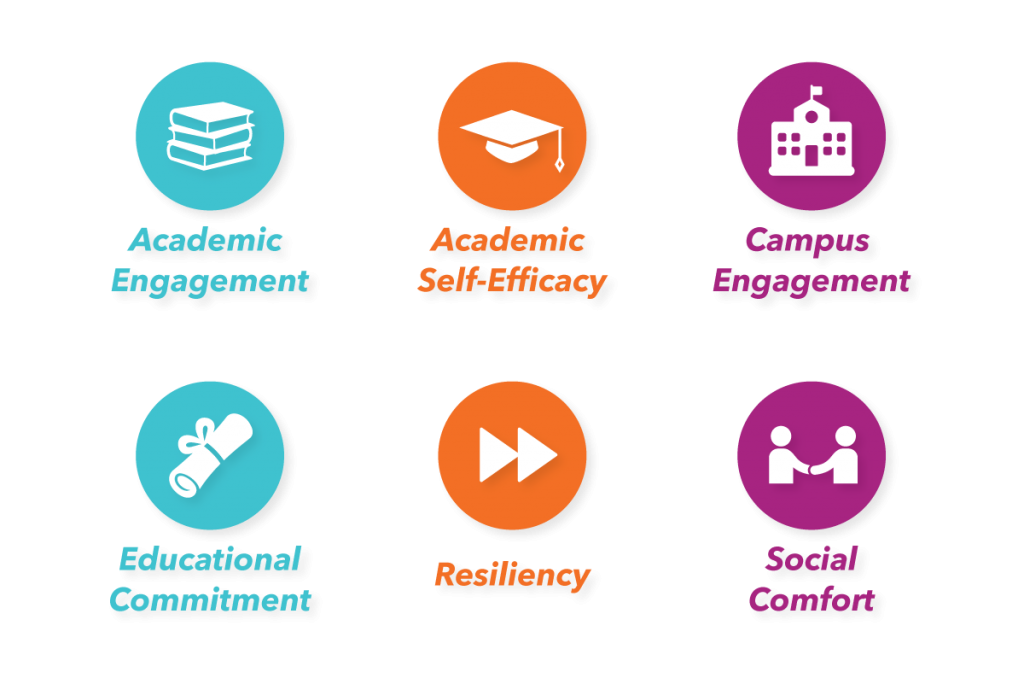
Academic Engagement
Your academic engagement refers to your interest and participation in your courses or a particular subject. Academic engagement can manifest as effort in classes and/or on assignments, attending classes regularly, asking thoughtful questions, and meeting deadlines. Academic engagement can also mean that you see clear connections between your academic interests and other issues or career paths that interest you.
Academic Self-Efficacy
Academic efficacy is a measure of your confidence in your ability to achieve academic success in college. Students with high academic efficacy often see difficult tasks as challenges to master, instead of threats to avoid.
Campus Engagement
Campus engagement represents your involvement and connection to the campus. Campus engagement can take a variety of forms, but often shows as embracing the college experience by becoming involved in clubs, groups, volunteer, or leadership activities.
Educational Commitment
Educational commitment is a measure of your dedication to the goal of attaining a college degree. Students with high educational commitment believe college is important for their future, or that a college degree will further their career goals, and are eager to put forth the effort required to complete their college education.
Resiliency
Resiliency refers to your responses to challenges and setbacks. Students with high resilience often have a relaxed and positive approach to managing challenging situations, and possess a range of effective coping strategies to manage and overcome problems.
Social Comfort
Social comfort is a measure of your feelings about being around people and socializing with others. Students with high social comfort often find interactions with others to be enjoyable, or may find it easy to work in groups. These skills can be used to build connections and a social network to support your educational goals.
